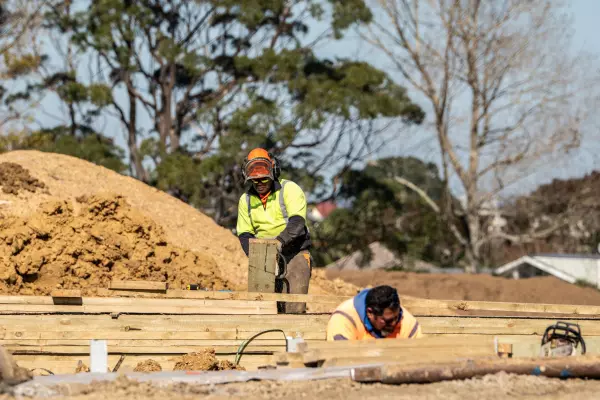Government needs to step in on commercial lease agreements
.png)
Commercial landlords and tenants want clear guidance from government around tenancy agreements while covid-19 restrictions remain in place.
Despite being halfway through the four-week initial lockdown, commercial leaseholders say terms have been left to “broad interpretation,” resulting in a mixed bag of solutions, ranging from landlords deferring payments or tenants refusing to pay rents outright.
Bell Gully partner and property specialist Karl Anderson said in cases where there was a “no access in emergency” clause included in a tenancy agreement, tenants were arguing that they had the right to a 100 percent rent abatement.
Landlords were holding the position that it should be based on the effects of the lockdown on the tenant’s business, rather than on the tenant’s access to the premises, he said.
For ‘essential’ businesses the position became even more complicated.
“A tenant’s business may only need to operate from part of its premises, or may only be using part of the premises because of reduced numbers of staff. On that basis, some tenants are arguing that they are entitled to a partial abatement.”
So, while negotiations continue, without any input from the New Zealand government, this week Australia rolled out a mandatory commercial tenancies code, aimed at bringing together principles of “good faith and proportionality” and overseen through binding mediation.
The tenancies code applies to businesses that have been placed in a position of financial distress due to covid-19 restrictions, had a turnover of less than A$50 million, and were already eligible to receive support under the Australian JobKeeper programme – in other words likely to suffer at least a 30 percent drop in revenue.
The code precludes landlords from terminating the lease and aligns rent reductions with the amount lost by the tenant under the pandemic.
This would either be through waiving or deferring rent.
Where rent was waived, that needed to reflect at least 50 percent of the rental during the period, while deferrals must be covered over the balance of the lease term over no less than 12 months after the pandemic period, regardless of whether the lease agreement had run its course.
In New Zealand most tenancies use a version of the Auckland District Law Society’s deed of lease. Only the most recent version in common usage, which was updated in 2012 after the Christchurch earthquakes, included the emergency 'no access' clause.
And while ‘rent abatement’ is included, that requires interpretation, in that it provides only that a “fair proportion” of the rent and outgoings cease until the tenant can operate from the premises and provides no further advice on how that proportion should be calculated.
ADLS property law committee member Joanna Pidgeon said the clause was deliberately non-prescriptive.
“The benefit of clause 27 is it allows people to look at the whole picture. It’s a moving feast at the moment and every commercial agreement is different so, in this scenario, tenants and landlords will need to negotiate. “
Pidgeon said even post lockdown, landlords and tenants needed to be financially sustainable for it to work for both parties.
She said unfortunately, there were some people who had taken it to “rather extreme positions,” which was unhelpful.
“Ultimately, those are the ones that could ultimately end up in arbitration.”
Bell Gully's Anderson said there were also a “significant number” of tenancies throughout New Zealand which did not have the same inaccessibility wording as set out in the current ADLS lease.
Many had no inaccessibility provisions at all, he said.
“The issue involves the interpretation of leases that have already been entered into. So, if the government were to take action on the issue in a way that is binding on landlords and tenants, then this would probably need to involve some retrospective legislation which specifies how the inaccessibility clause is to be interpreted.”
He said while this could give greater certainty to everyone in the short term, it could still lead to its own issues, potentially overriding the specific intentions of the parties to the leases.
The Coffee Club director and property manager, Brad Jacobs, who personally holds head leases on behalf of 64 of the 66 coffee franchises around the country, said better direction was needed urgently.
He said landlords broadly fell into three camps. “There is a group that have negotiated quickly and fairly, there is a very small group that have been inflexible and adopted the 'is what it is' approach, and there is a large group in the middle who are waiting for government to give them advice - but who aren’t putting undue pressure on us to pay rent at the moment.”
He said of the 66 leases, only 11 included the rent abatement clause. “Whether the clause is in there or not seems to have little effect on the interpretation from landlords, who were adopting an opening gambit of paying the true cost in full.”
Pidgeon said where agreement couldn’t be reached, parties could go to the Auckland District Law Society disputes committee, which was a “lower cost option” and could be convened on short notice.
She said revisions to the current terms of the lease had started last year and lessons from covid-19 would be taken into consideration.
“However, given the wide range of different circumstances facing each landlord and tenant relationship, it is unlikely that a prescriptive approach will be taken to ensure that fairness prevails.”
Comments













